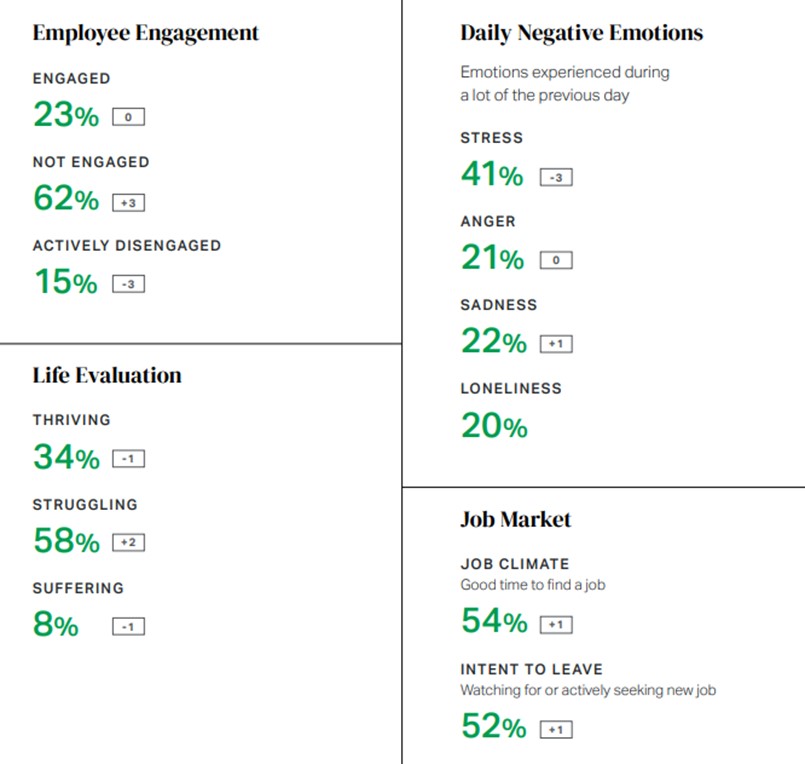
In an era marked by continuous disruptions, leaders are increasingly called to guide their teams through challenging and unpredictable times.
Crises stemming from political, economic, and geopolitical events prompt leaders to rethink how they maintain productivity, engagement, and cohesion. However, while current crises undoubtedly impact team morale, they may not be the sole factor. Pressures such as a results-driven culture and shifts in management practices also shape the employee experience. Senior managers need to develop critical competencies, both to navigate the immediate effects of uncertainty and to prepare for long-term resilience.
Crises can create stress within teams, affecting engagement and cohesion. Issues like rising fuel costs, resource shortages, and heightened geopolitical tensions may play a significant role in reducing morale, yet they are part of a broader array of challenges employees face today. A study by Gallup suggests that nearly half of employees feel disconnected from their organisation’s objectives in times of uncertainty. But are crises really the primary cause? Leaders are encouraged to look holistically at factors influencing engagement, responding proactively to strengthen alignment with organisational values and maintain team motivation.

During a crisis, the leadership role extends from traditional oversight to embodying stability and clarity. Leaders are not only responsible for decisive actions but also for addressing underlying anxieties within their teams. A Deloitte report shows that consistent and transparent communication from senior leaders can foster trust and engagement, which are critical during uncertain times. Leaders are thus called to remain adaptable and empathetic, addressing both the operational and emotional needs of their workforce.

Adapting to crises requires a dynamic approach to leadership that balances immediate operational resilience with a forward-looking mindset. Key actions include:

While crises reveal organisational vulnerabilities, they may also uncover opportunities for growth and adaptation. The World Economic Forum reports that organisations accelerating digital transformation efforts during the COVID-19 pandemic often achieved substantial revenue growth post-crisis. This highlights how a proactive, future-focused approach can enable organisations to adapt and even capitalise on changes in the environment, transforming adversity into competitive advantages.

Effective crisis management involves looking beyond immediate issues to anticipate future challenges. Deloitte's research highlights that organisations with robust continuity plans are better equipped to handle subsequent crises. Leaders should prioritise risk anticipation, foster a culture of continuous learning, and reinforce organisational agility to create a workforce capable of thriving amidst ongoing uncertainties.

Leadership during crises requires a blend of strategic insight, adaptability, and empathy. For executives and senior managers, leading teams through uncertainty is as much about resilience as it is about building a foundation for long-term success.
Rather than solely responding to crises, leaders should cultivate an organisational culture ready to confront future challenges and to transform adversity into progress.